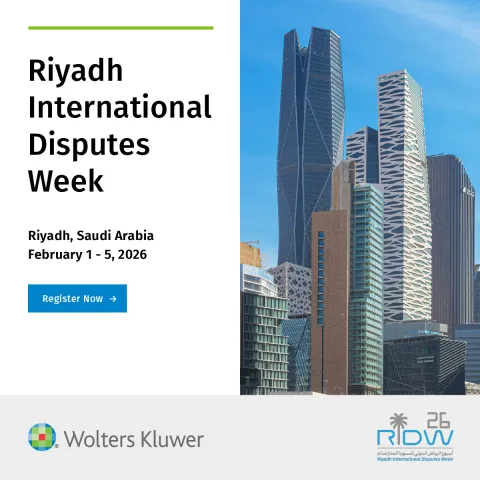Mediation in French Civil Law: A Turning Point?
September 2, 2025
On 1 September 2025, Decree 2025-660 (“2025 Decree") recodifying amicable dispute resolution takes effect with a promise to reshape the French mediation landscape. The Decree modernises the legislative framework by introducing new provisions in the French Code of Civil Procedure and revising existing ones, a reform long called for, given the multitude of overlapping and sometimes conflicting rules that were subject to criticism from academics and practitioners.
France, as the cradle of a codified legal tradition and as a strong advocate of ADR within the EU, now faces the challenge of balancing codification with the voluntariness and confidentiality aspects of mediation. Can the 2025 Decree strike that balance?
Before the 2025 Decree
Law No 95-125 of 1995 reforming French civil law was a foundational step for codifying mediation as it formally recognised ADR (mediation and conciliation) in judicial proceedings and allowed judges to appoint a mediator with the consent of the parties at any stage of the proceedings. This underwent several amendments over three decades to include incorporating the EU Mediation Directive 2008/52. The French Code of Civil Procedure included separate provisions for court-referred mediation (former Arts. 131-1 to 131-15) and conventional mediation (former Arts. 1528 to 1571), used in civil and commercial disputes, where the parties are free to settle their rights. In court-referred mediation, the mediator is appointed by the judge with the parties’ consent, whereas in conventional mediation, the parties themselves appoint the mediator by agreement. Since 2019, the Code of Civil Procedure also mandates parties to attempt ADR in monetary disputes below the value of €5,000 and neighbourhood disputes, such as conflicts between neighbours over boundaries or use of property (Art. 750-1).
What’s new?
The 2025 Decree consolidates duplicative, scattered provisions on ADR across the French Code of Civil Procedure under one single Book V on the amicable resolution of disputes in the Code of Civil Procedure. This Book sets out the general mediation framework in France as lex generalis, without intervening in domain-specific mediation provisions. The abovementioned court-referred and conventional mediation provisions are now reorganised and streamlined (Arts. 1528 to 1549). Having said this, the provisions on conventional mediation remain essentially unchanged, apart from their recodification within the new Book V. Likewise, the aforementioned provision mandating ADR under Art. 750-1 remains unchanged.
Besides this revised legal architecture, the 2025 Decree brings important statutory changes. It empowers judges with the discretion to order parties – at any time during the proceedings and irrespective of their consent – to attend a first mediation information session. This session is not mediation itself, but rather a chance for the mediator (appointed by the court) to explain the process and benefits of mediation to the parties. Everything said in this session is confidential, with the exception that the mediator must report parties’ attendance to the court. The continuation of mediation beyond this first session remains consensual in order to maintain the traditional principle of voluntariness in mediation while giving courts a stronger procedural lever to expose litigants to mediation. If the parties agree to proceed with mediation after this session, then the process converts to a full mediation with the same mediator under ordinary provisions for court-referred mediation (Art. 1533). In addition, the court can now issue a two-in-one-order directing parties to attend the mandatory information session and – if the parties wish to continue mediating after this session – then a court-referred mediation.
The provision regarding the first information session, initially introduced in the Civil Code by Law 2016-1547 in 2016 for family matters (for example, custody and parental authority disputes and divorce matters) as a measure to encourage parties to resort to amicable methods of resolving disputes, now has general application, building on its reported success. To ensure efficacy in practice, the 2025 Decree empowers judges to sanction parties for failing to attend the first information session with a fine of up to €10,000 upon the judge’s discretion if the absent party does not provide a legitimate reason for their non-compliance.
In both types of mediation, the documents and information shared during mediation are confidential, unless otherwise agreed by the parties (Art. 1528-3). To prevent abuse, documents created for the purposes of mediation are confidential. However, pre-existing documents (such as contracts or invoices) do not become confidential merely because they are exchanged during the mediation. Under the 2025 Decree, apart from informing the court about a party’s absence at the first session, the mediator is also required to inform the court about any difficulties encountered in carrying out the mediation and whether the mediation has resulted in a success or failure, but nothing more. Therefore, a balance is struck between the principle of confidentiality as a defining feature of mediation and the court’s need to be informed of the process’ status. However, the court is never divested of its jurisdiction. Judges may terminate mediation at the request of a party, on the mediator’s initiative, or ex officio if the process is clearly compromised or has become pointless, thereby positioning mediation as a flexible, judge-facilitated adjunct to litigation. Additionally, the new rules provide explicit exceptions to confidentiality, including reasons of public order, child protection, protection of physical or psychological integrity of a person, or when disclosure is necessary to implement and enforce the mediated settlement agreement.
Whilst no statutory time limit applies to conventional mediation, court-referred mediation is now subject to a five-month duration pursuant to the 2025 Decree, which may be extended by the court on the mediator’s request, up to a maximum of eight months (Art. 1534-4). This extends the previous term by two months to accommodate more complex proceedings.
A mediated settlement is a binding contract on its own, i.e. without involving the court. However, the 2025 Decree gives parties two routes if they want an enforceable title: (1) a new and simplified process of registration of the agreement with the court registry, which gives makes it enforceable; (2) or the classic homologation procedure before a judge. Homologation remains attractive when parties want judicial confirmation to, for example, enforce the agreement abroad or strengthen certainty in sensitive matters, whilst registration offers a faster, lighter option for routine cases. This innovation reflects the broader legislative intent to promote amicable resolution by lowering the hurdles to enforcement since previously, homologation was the only route, with its costs and delays.
What’s left to do?
The National Mediation Council (Conseil National de la Médiation), operational since 2023 to advise on mediation policy and propose measures for improvement, recently published its interim progress report for the period of June 2023 to November 2024, which merits a close look. The Council argues that mediation remains underused in France’s civil and commercial justice system, offering a critical account of the structural, institutional and procedural challenges - such as the absence of sanctions for parties for ignoring directions to mediate, unclear time limits and uncertainty over confidentiality - many of which have now been addressed by the 2025 Decree.
However, several issues remain unaddressed. The 2025 Decree reaffirms the need for mediators to observe conditions of independence and deontology but stops short of establishing detailed qualification and training standards, which was one of the Council’s recommendations. This remains fragmented across mediation institutions in France, with no governing uniform national code of conduct, which is an unusual gap in a legal culture otherwise known for codification. France still operates without a framework on who qualifies as a mediator and under what standards they should operate. This contrasts with some other European countries where professional regulation of mediation is more firmly established, such as Italy, with its accredited mediation centres and trained mediators, and Belgium, where mediators are approved and supervised by the Federal Mediation Commission.
Closely tied to these issues is the unresolved question of how mediation is financed. The 2025 Decree does not regulate mediator remuneration or establish any broader framework for funding access to mediation. Given that the Decree explicitly encourages judges to direct parties to try mediation, the lack of clear economic guidelines risks creating inequalities in access and barriers for parties with limited means.
Another striking omission is the absence of provisions to establish a legal foundation for reliable statistical tools to measure the outcomes of mediation and track its uptake in France. At present, French courts do not systematically register how many cases settle through mediation, how many agreements are homologated by judges, or how many disputes are withdrawn after a mediated settlement. Without such data, policy makers and practitioners lack the ability to evaluate the practical impact of mediation and related reforms, such as the 2025 Decree. Accordingly, even the Council’s interim reports rely on qualitative feedback from courts, mediators and professional bodies together with scattered local data, and these reports too underscore the urgent need for a proper national statistical tool.
Furthermore, the 2025 Decree does not address the effect of mediation on limitation and prescription periods outside formal judicial proceedings. In other words, it remains unclear whether the clock on a claim stops running during conventional mediation, creating legal uncertainty and potential risks, which can discourage parties from engaging in conventional mediation out of fear of losing their right to pursue their claim in court if mediation does not succeed.
Lastly, judges are not obligated to exercise their new power under the 2025 Decree to direct parties to the first information session. Therefore, outside the limited scope of mandatory mediation under Art. 750-1 cases, a judge may still choose to not refer a (suitable) case to mediation. Hence, the uptake of mediation could still be largely contingent on the personal commitment of individual judges.
Outlook
The revised legal framework marks an important step in France’s progress towards a culture of amicable dispute resolution. It introduces real progress: referral (albeit discretionary) of parties to mandatory mediation information sessions with sanctions for non-compliance, clearer rules on confidentiality, longer timeframe for court-referred mediations and a defined role for courts in approving or registering settlements. Whilst the practical impact of the 2025 Decree remains to be seen, France appears well-positioned to strengthen the role of mediation, carefully balancing codification with the voluntariness and confidentiality that define the process.
Having said this, the 2025 Decree also leaves many questions unanswered. How should mediators be trained and supervised? How is mediation financed and how can access to mediation be guaranteed across the society? How can outcomes be measured?
The answers lie in the hands of the National Mediation Council, future legislative reforms, and broader policy debate on how far France wants to go in integrating mediation into its dispute resolution ethos and architecture. The challenge now lies in strengthening public uptake, integrating mediation systematically into the judicial process, establishing clear professional standards for mediators, overcoming remaining institutional and cultural obstacles (such as litigation bias, unfamiliarity with mediation), and exploring new technologies such as Online Dispute Resolution and artificial intelligence.
As such, the 2025 Decree is a solid step in the right direction but also a reminder that France’s mediation reform project is far from complete.
You may also like










Paul Sills
Editorial Comment Defne Taşman’s timely analysis of the 2025 Decree highlights an important moment for mediation in France: a move towards coherence, accessibility, and judicial support in a system historically characterised by fragmented provisions. The reform strengthens the court’s role in exposing litigants to mediation while striving to preserve voluntariness and confidentiality—two of mediation’s defining features. At the same time, as Defne points out, much remains unfinished. The absence of uniform training and qualification standards, the lack of a clear framework for financing mediation, and the uncertainty around suspension of limitation periods illustrate the complexity of embedding mediation in a codified civil law tradition. These gaps raise broader questions about how far mediation should be regulated, and whether codification supports or risks constraining the flexible and party-driven ethos that makes mediation distinctive. The French experience also resonates internationally: many jurisdictions grapple with the same issues of judicial discretion, voluntariness, accessibility, and professional standards. It will be important to observe whether the Decree encourages a genuine cultural shift towards amicable resolution or whether uptake remains dependent on individual judges and local practice. Questions for our readers: Do mandatory information sessions strike the right balance between promoting mediation and respecting party autonomy? How important is it to have nationally uniform standards for mediator training and qualifications? Should France follow the path of countries like Italy and Belgium, or preserve a more decentralised approach? What models of funding or financial support for mediation have you seen work well elsewhere, particularly to ensure access for parties with limited means? Should mediation outcomes be systematically tracked by courts and policymakers—or does this risk undermining confidentiality and flexibility? More broadly, how should jurisdictions balance the benefits of codification with the values of voluntariness and informality at the heart of mediation? We invite our readers and colleagues worldwide to share their perspectives—both from France and from other jurisdictions wrestling with similar reform questions.